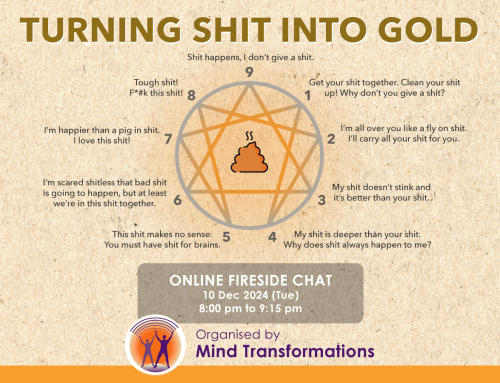As convenient and relieving as it is to point your finger to someone else in blame when your plans don’t work out the way you had hoped, we regret and at the same time, we are happy to announce you that more often than not, you are the one standing in the way of your own success.
Why are we happy to say this? Because if you know that you are sabotaging yourself, it means that it’s also in your power to do something to stop that, it means that you are in control.
“Why would I sabotage myself?”
Well, sometimes we do it in order to protect ourselves from the hard work implied by the difficulty of the tasks at hand or from the possibility of failure or embarrassment; other times, to give ourselves a chance to stay in the cosy comfort zone where unpredicted things cannot happen, where we feel safe. And this is happening subconsciously, out of our awareness.
So, to find out if you are your own saboteur, look for these patterns in yourself:
1. “I have to…”, “I should…”
Every time you use these phrases, you are creating a barrier between yourself and your outcome. From a neurolinguistic point of view, when you say these words, you subconsciously tell your brain that you don’t actually want to achieve that outcome yourself, but that it is imposed on you by someone or something outside of you; and your brain will register that and will find ways to stop you from doing it.
2. You make time for others, not for yourself
Other peoples’ priorities are always more urgent, more important and they get your attention first. When it comes to doing your own things, you are already exhausted and have no more time, nor energy left for them.
3. “I’m not good enough to do this”
And you’ve already set a barrier between yourself and your outcome. If you don’t believe you are good enough to accomplish something, guess what? You probably won’t. We have a saying in NLP that goes: “If you believe you can, you’re right. If you believe you can’t, you’re right!”
4. “I want to say ‘no’ to others, but…” …but you don’t, right?
So you get frustrated because deep down you know you want to say “no”, and your mouth just won’t utter the word! So your words and thoughts are in misalignment, your inner critic strongly disagrees with you and your body of course, feels the tension. Why do you sabotage yourself like this? Well, it may be because you don’t
want others to feel bad when you say “no”, or simply because you just want to preserve the good image people have of you.
5. You don’t have a clear outcome in mind
If you don’t know where you’re going, how can you hope to reach your destination? It’s absurd when you put it this way, isn’t it? Yet many of us are struggling with this very often and get disheartened when results fail to appear. When you’re not clear of your outcome, you don’t know your stepping stones and thus, how can you even start
working on achieving anything?
6. You procrastinate, waiting for the right time, the right mood, and the right people to appear for you to take action
And you postpone your goal day after day and week after week and the right time, mood and people fail to show up. Very often, you procrastinate when you are not clear of the steps or first step you need to take toward your goal. But when you know exactly what you need to do and how to do it, it feels that the right time has come, you’re in the perfect mood and suddenly surrounded by just the people you need!
7. You believe others are responsible for your emotions and moods
The truth is… they’re not. You are the only one in control of what and how you are feeling. There may be outside triggers for different states, yes, but you are the one deciding how these triggers will affect or not affect you. Nobody can “make you” feel anything because your state comes from the inside, not outside. And why is this a self-sabotaging pattern? Well, because state precedes performance. If you’re in the wrong state, you will probably not get the best outcome out of the activity you’re engaged in. If you’re angry or sad, can you really perform to the best of your ability?
8. “I don’t deserve to relax; I haven’t finished my tasks”
So you work like a dog, driven by this constant need to maximise every second of your life to do more work and you end up feeling guilty for even sleeping at night. For you, there’s no such thing as enjoying something until you’ve certified that you deserve it by finishing your tasks first. But how long can you really last in this manner? Without realising it, you are sabotaging your health and inner balance because your body rarely gets a chance to rest well and recuperate.
And these are some of the most common ways in which we tend to sabotage our own goals and dreams.
How many of them do you recognise in yourself?
All 8? 3? Only 1? Even if it’s only one, if you become aware of it now, you will also be aware of it the next time it shows up in you and you will then be able to do something about it.
Discover how you can break free from such self-sabotaging games. By developing skilful coaching competency, you can accelerate your professional and personal growth towards a successful and fulfilling outcome. Remember that awareness is the first step to any change.






